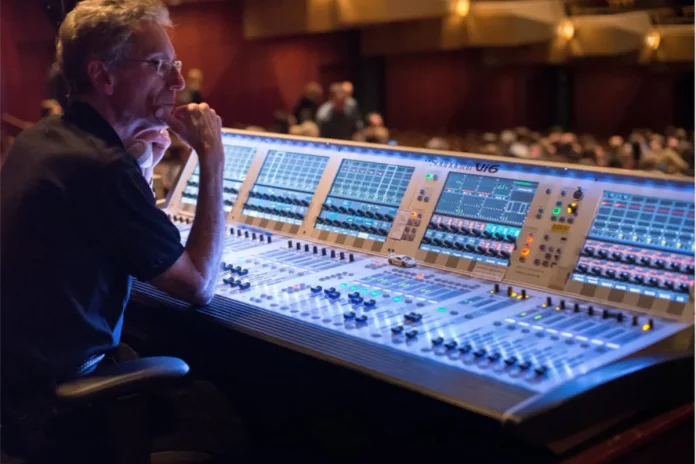Technology has become an integral part of our daily lives, and it is no different in the events industry. From online event registration to social media check-ins, technology has greatly improved the way we plan and execute events. However, there are instances where tech can cause more problems than it solves. In this blog post, you will explore eight ways that technology can enhance events, but how it can hinder them too.
The rise of automation, cloud computing, and mobile devices is transforming the way events are planned, marketed, and executed. However, with technology comes the risk of system failures, data breaches, and loss of human touch. Sometimes there is a place for technology in events, and sometimes there isn’t.
Here are eight ways technology can be transformative in the events world, plus some occasions when you should avoid technology.
Table of Contents
1. Streamlining Event Registration
Technology has allowed event managers to automate event registration through an online event booking system, QR codes or mobile apps. This has made the registration process more accessible, efficient, and cost-effective. Attendees can register for events from anywhere in the world using their mobile devices.
2. Enhancing Attendees’ Experience
Technology has made it easier for attendees to interact and engage with events, enabling organizers to personalize and customize their experiences. For instance, event apps can provide real-time updates, push notifications, and social media integration. Attendees can also use virtual and augmented reality to get a more immersive experience.
3. Improving Event Logistics
Technology has streamlined event logistics, making it easier for event organizers to manage their events efficiently. For instance, event management software can help organizers manage tasks such as scheduling, staffing, and budgeting. Similarly, online tools such as 3D floor plans and digital signage can help organizers create a more engaging and interactive event space.
4. Leveraging Data for Decision-Making
Technology has provided event managers with a vast amount of data on customer behavior, preferences, and feedback. This information can be used to make informed decisions about event planning, pricing, and marketing strategies. Analyzing data can help event managers personalize marketing messages and create relevant content for their target audience. Moreover, by employing predictive analytics, event managers can anticipate future trends, enabling them to stay ahead of the curve and deliver events that surpass attendee expectations.
5. Facilitating Networking
Technology has made networking at events more accessible and effective. Attendees can use event apps to connect with other attendees, exchange business cards, and schedule meetings. Such tools can help attendees build meaningful relationships with other professionals in their industry.
6. Integrating Cashless Payments
Technology has made it easier for attendees to make purchases at events through cashless payment systems such as mobile wallets and contactless cards. This method of payment can reduce waiting times, speed up transactions, and provide attendees with more convenience.
7. Cutting Down on Paper Waste
Technology has allowed event managers to go green by reducing the amount of paper used in events. With the advent of e-tickets, digital signage, and online agendas, the need for paper has decreased considerably. This has not only reduced the environmental impact of events, but also saved costs on printing and shipping. Additionally, this digital shift has made it easier for attendees to store and access information, enhancing their overall event experience.
8. Managing Event Security
Technology has become crucial in event security management, helping organizers to identify and prevent potential breaches. With the use of facial recognition technology, RFID wristbands, and other surveillance systems, event managers can keep their attendees safe and secure.
When Technology Shouldn’t Be Used In Events
Too much emphasis on technology can take away from the overall human experience and the value of face-to-face interaction. Relying too much on technology can diminish the chance of spontaneous interactions and limit the ability to create real human connections. Not everyone has the same access to or comfort level with technology, so you should always have alternative methods for doing things to ensure your events don’t exclude people.
Another crucial aspect to consider is that technology can sometimes create an unwelcome distraction at events. While smartphones and tablets can enhance the attendee’s experience with interactive features, they can also lead to attendees spending more time on their devices rather than engaging with the event itself. When the focus shifts from the actual event to the device, the essence of the event can be lost.
Additionally, not all technology implementations work flawlessly. Technical glitches are a common occurrence and can disrupt the flow of an event. A system failure during a keynote speech or a glitch in the registration process can lead to dissatisfaction and frustration among attendees. Hence, it is essential to have backup plans and professional technical support to ensure that any issues are resolved swiftly.
Another consideration is privacy concerns. As technology allows for the collection and analysis of vast amounts of data, it raises questions about data security and privacy. If not managed properly, this could lead to breach of personal information, resulting in a loss of trust among attendees.
Finally, the use of technology should be carefully evaluated based on the nature of the event. For instance, a tech conference might benefit from the latest advancements, but a meditation retreat or a music festival might want to minimize technology use to foster a more relaxed and immersive experience.
Technology has brought about significant changes to the events industry, making it more accessible, efficient, and engaging. From streamlining registration processes to enhancing attendees’ experiences, technology has transformed the way we plan and execute events. However, for all the benefits that technology has brought to the events industry, there are also risks. System failures, data breaches, and loss of human touch are all areas of concern for event managers. Therefore, it is crucial to balance the use of technology with a focus on the human experience.


Review 8 Ways Tech Can Improve Events, and How It Can Hinder Them Too.